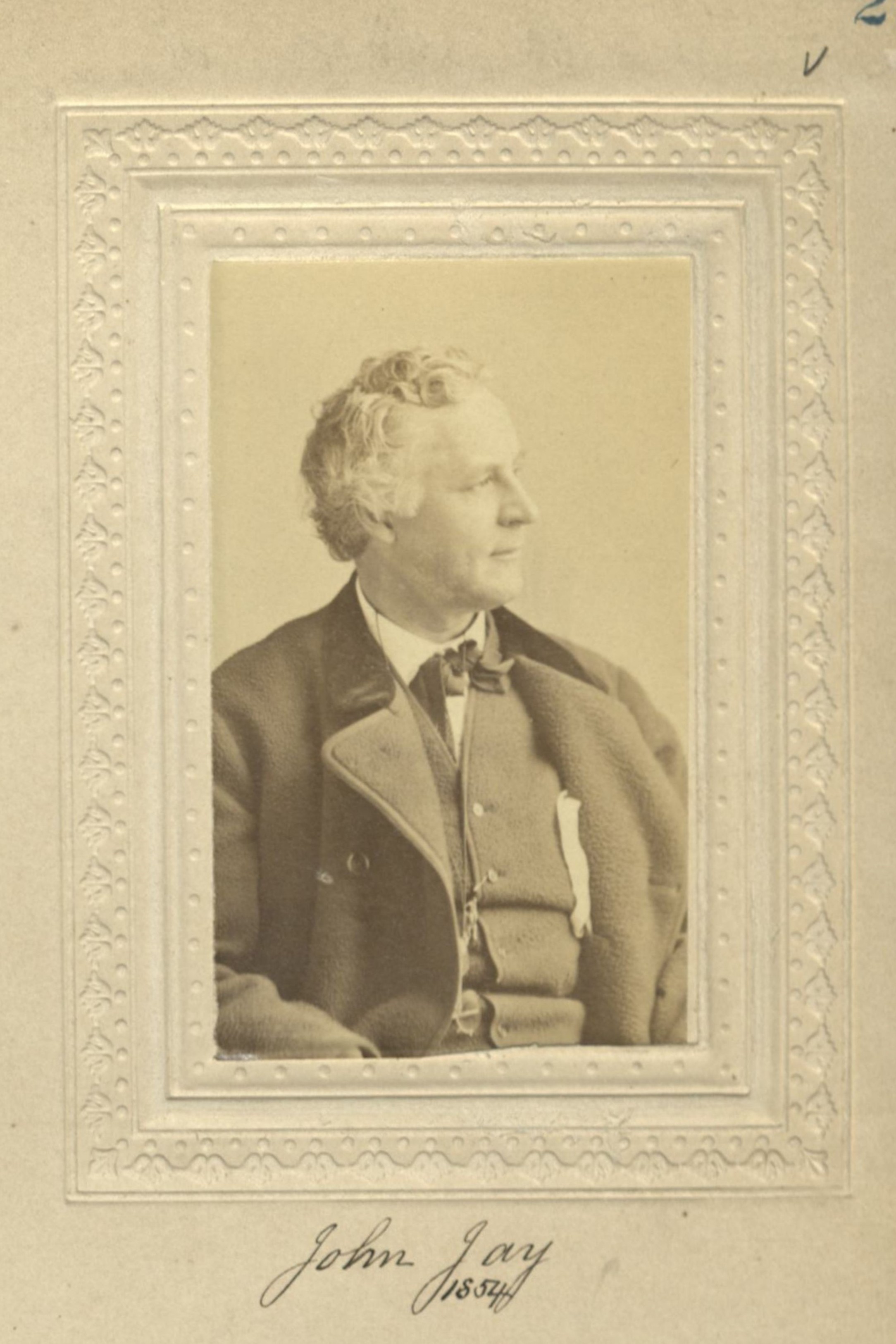Lawyer/Diplomat/Reformer
Centurion, 1854–1894
Born 23 June 1817 in New York (Manhattan), New York
Died 5 June 1894 in New York (Manhattan), New York
Buried John Jay Cemetery , Rye, New York
, Rye, New York
Proposed by William Cullen Bryant
Elected 4 November 1854 at age thirty-seven
Archivist’s Note: Designated an honorary member in 1854. Father of William Jay; brother-in-law of Henry E. Pellew; father-in-law of Edmund R. Robinson and William H. Schieffelin; grandfather of John Jay Chapman and William J. Schieffelin; great-grandfather of Conrad Chapman, Bayard Schieffelin, and William J. Schieffelin Jr.
Seconder of:
Century Memorial
John Jay, one of our most esteemed members, was the heir of an illustrious name, which in all the line from his distinguished ancestor, the first Chief Justice of the United States, to the present generation, has been associated with whatever is pure and of good report. New lustre was added to it by his own character and public services, which have been recognized by a grateful country. He held from youth to maturity with admirable courage to his convictions of right, regardless of personal consequences to himself—sacrificing popularity, political preferment—bearing derision unmoved, and devoting his time, his fortune and his services to the cause he had espoused. He saw it triumph, and that was his great and only reward.
He was foremost in the time of national peril in maintaining the public courage and tenacity. In all great questions affecting pure government and moral progress he was of the truest kind of reformers. In every controversy he was always kind, conciliatory and fair, as gentle and as courtly a knight as ever put lance in rest; and when it was ended he was the first to extend the hand of reconciliation. As a member of the Commission to lay out the National Cemetery on the battlefield of Antietam, he insisted that a portion of it should be reserved for the Confederate dead, and in spite of serious opposition and the withdrawal of the appropriation of two States, his kindly and generous suggestion was adopted. To his grace of person there was added perfect simplicity of character, kindliness of temper, loyalty and unyielding devotion to duty. He was spotless in his life, a devout Christian, and reflected honor upon his country in every place of trust to which he was assigned. No words of eulogy can be extravagantly applied to such a man, who
“Bore without abuse
The grand old name of gentleman.”
Henry E. Howland
1895 Century Association Yearbook

